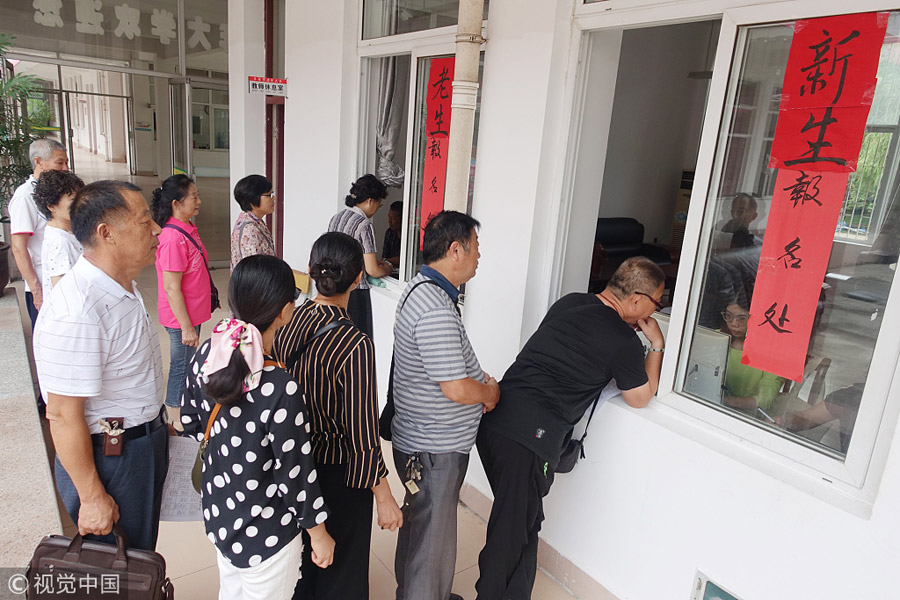Senior education in high demand
By Li Lei | China Daily | Updated: 2018-09-25 09:02

Wen Zhonggui has become accustomed to receiving a torrent of phone calls from seniors pleading for a spot at his school in Taiyuan, Shanxi province, as thousands of places periodically made available online are snapped up within seconds.
"We have more than 70 teachers and 7,000 students," said Wen, director of teaching affairs at the government-funded Shanxi Elderly University, "but supply falls far short of increasing demand".
University in this context refers to an education center catering to seniors without offering degrees.
The school is among the thousands of senior education institutions nationwide that are struggling to cope with the rapid growth in demand from those over 60 years of age for education resources.
"To ease on-campus pressure, we provide the more popular courses online so that students can participate in them at home," Wen said, though he noted many still come to classrooms for the company and human interaction.
"We've also cooperated with private companies to start branch schools, and launched volunteer groups who endeavor to keep seniors in their communities by teaching classes there."
According to the National Working Commission on Aging, the country has 73,000 universities for seniors, with a total of about 8 million students.
Yet space has become stretched. In 2017, China was home to 240 million people age 60 or over, accounting for 17 percent of the population. Demand for senior education institutions has been rising since the 1990s, and their popularity today is such that only one in four applicants can be accepted.
Though senior education needs are met through other means such as community-based lectures and popular senior online courses, demand for places at these institutions runs high, said Diao Haifeng, vice-chairman of the China Association of Universities for the Aged.
According to a five-year central government development plan for senior education institutions, every city should have at least one education center for the elderly by 2020, while half of towns must set up such schools and 30 percent of villages should have elderly learning centers.
The plan also requires that by the end of 2020, at least 20 percent of people over age 60 - some 60 million, according to Diao's estimates - should have access to education through various means.
To fulfill this goal, Diao said efforts will be diverted to develop community-based education, along with long-distance education that could allow seniors in community classrooms to access quality courses, which he said could help ease the pressure on universities.
"The task remains arduous, as the goal requires providing an estimated 40 million with education in just two years," he said.
Dang Junwu, deputy director at the China Research Center on Aging, noted that most senior education institutions started as government-funded schools for retired government officials, and that there is a lack of private capital in the sector.
To solve the shortage, the government should work with private companies to provide services for seniors, he said.
























